Discover the Women of the Hall
These are the Inductees of the National Women’s Hall of Fame. Select any of the women to discover their stories and learn how they have influenced other women and this country.
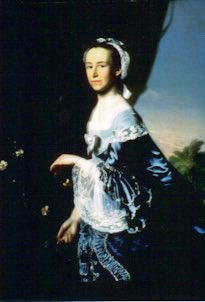 Mercy Otis Warren
Arts
1728
Massachusetts
2002
Mercy Otis Warren
Arts
1728
Massachusetts
2002

Mercy Otis Warren
Poet, dramatist, satirist and historian Mercy Otis Warren was widely known for using her pen to share her strong political views. She advocated for national independence and opposition to royal tyranny through works such as The Adulateur and The Group.
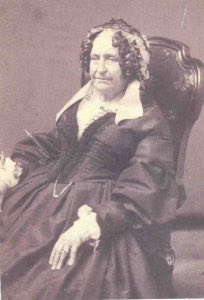 Emma Hart Willard
Education
1787
Connecticut
2013
Emma Hart Willard
Education
1787
Connecticut
2013

Emma Hart Willard
During her lifetime, Emma Hart Willard blazed an extraordinary trail on behalf of women’s education. A teacher by trade, Willard opened a girls’ school in her home in 1814 and was struck by the contrast between the education she could offer her women students and the education provided to men at nearby Middlebury College. She crafted A Plan for Improving Female Education, a document in which she advocated equal education for women at the academy level. In 1819, at the encouragement of Governor DeWitt Clinton, Willard opened a school in Waterford, New York which closed shortly afterward due to a lack of funding. Two years later, she founded Troy Female Seminary in Troy, New York (1821), the first school of higher learning for women. The seminary was renamed the Emma Willard School in her honor in 1895.
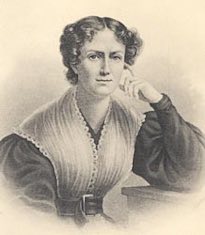 Fanny Wright
Humanities
1795
Scotland
1994
Fanny Wright
Humanities
1795
Scotland
1994

Fanny Wright
First American woman to speak out against slavery and for the equality of women. An inspiration to Stanton, Anthony and other women’s equality advocates, Wright wrote and spoke out publicly for equal rights for all at a time when women were not accepted in such roles.
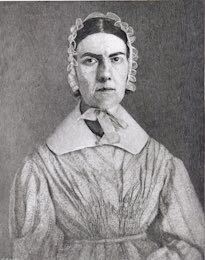 Angelina Grimké Weld
Humanities
1805
South Carolina
1998
Angelina Grimké Weld
Humanities
1805
South Carolina
1998

Angelina Grimké Weld
Along with Sarah Grimké, wrote numerous published papers which championed abolition and women’s rights. The Grimké sisters were southerners who became the first female speakers for the American Anti-Slavery Society. Sarah’s Letters on the Equality of the Sexes exposed the plight of factory women in New England, as well as arguing on behalf of women’s rights and abolition. Through their examples and their words, the Grimkés proved that women could affect the course of political events and have a far-reaching influence on society.
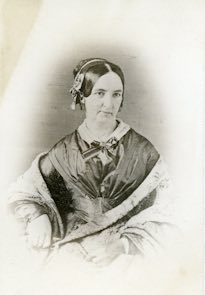 Martha Coffin Pelham Wright
Humanities
1806
Massachusetts
2007
Martha Coffin Pelham Wright
Humanities
1806
Massachusetts
2007

Martha Coffin Pelham Wright
Martha Coffin Pelham Wright was one of five visionary women who organized the first women’s rights convention in Seneca Falls, New York in 1848, forever changing the course of American history. She was also one of the few women who attended the 1833 founding meeting of the American Anti-Slavery Society. An accomplished author, she wrote for local and national publications on anti-slavery and women’s rights issues. She was elected President of the National Woman Suffrage Association in 1874, serving until her death in 1875.
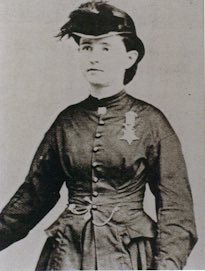 Mary Edwards Walker
Philanthropy, Science
1832
New York
2000
Mary Edwards Walker
Philanthropy, Science
1832
New York
2000

Mary Edwards Walker
First female surgeon in the U.S. Army, she continually crossed the Confederate lines to treat civilians. After being taken prisoner in 1864 and imprisoned in Richmond, she was awarded the Congressional Medal of Honor, the first woman to receive this award. In 1917, her medal, along with 910 others, was taken away when Congress revised the standards to include only “actual combat with the enemy.” She refused to return the medal, wore it until her death, and it was finally awarded to her posthumously.
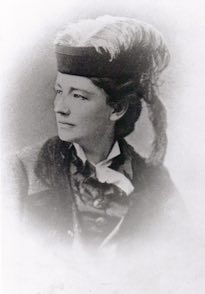 Victoria Woodhull
Humanities
1838
Ohio
2001
Victoria Woodhull
Humanities
1838
Ohio
2001

Victoria Woodhull
A 19th century reformer, Victoria Woodhull established a reputation as a radical freethinking reformer. She was a suffragist, author, political activist, and the first woman to run for President of the United States (1872).
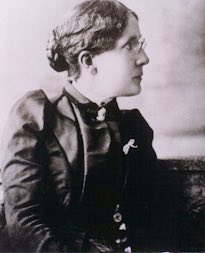 Frances E. Willard
Humanities
1839
New York
2000
Frances E. Willard
Humanities
1839
New York
2000

Frances E. Willard
As second president of the Women’s Christian Temperance Union (WCTU), she led the largest organization of women in the United States. The WCTU provided a base for the 20th century women’s rights movement, supporting, in addition to women’s suffrage, broad social reforms such as equal pay for equal work, the eight hour day, and the protection of women and children in the workplace.
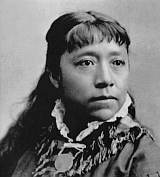 Sarah Winnemucca
Humanities
c.1844
Nevada
1994
Sarah Winnemucca
Humanities
c.1844
Nevada
1994

Sarah Winnemucca
Paiute leader who dedicated her life to returning land stolen by the government back to the tribes, especially the land of her own Paiute Tribe.
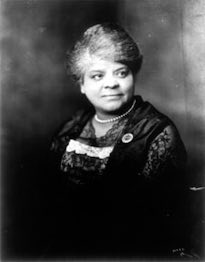 Ida B. Wells-Barnett
Arts, Humanities
1862
Mississippi
1988
Ida B. Wells-Barnett
Arts, Humanities
1862
Mississippi
1988

Ida B. Wells-Barnett
African American leader, anti-lynching crusader, journalist, lecturer and community organizer who fought social injustice all her life. Wells-Barnett sued a railroad over segregated seating, criticized segregated education and became editor and part owner of a newspaper. The horrors of lynching inspired her to lead a major effort to abolish the atrocity.
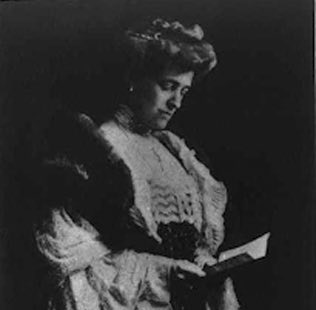 Edith Wharton
Arts
1862
New York
1996
Edith Wharton
Arts
1862
New York
1996

Edith Wharton
American novelist and short story writer of the 20th century. The first woman to receive the Pulitzer Prize for fiction (for The Age of Innocence, 1929), Wharton was a prolific writer who averaged more than a book a year after the age of 40 until her death.
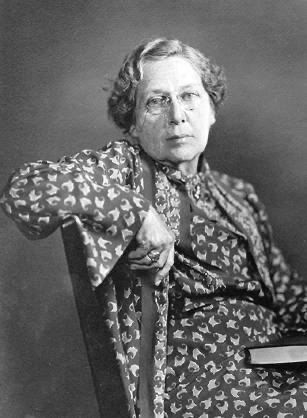 Anna Wessels Williams
Science
1863
New Jersey
2024
Anna Wessels Williams
Science
1863
New Jersey
2024

Anna Wessels Williams
Dr. Anna Wessels Williams was a pioneer in the field of immunology. She earned her medical degree from the Women’s Medical College in New York before joining the nation’s first municipal diagnostic laboratory at the New York City Department of Health.
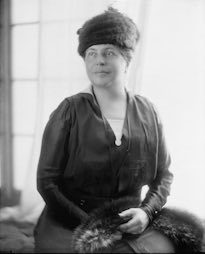 Lillian Wald
Science
1867
Ohio
1993
Lillian Wald
Science
1867
Ohio
1993

Lillian Wald
Nurse who organized the public health nursing service and the Henry Street Settlement in New York City to meet the needs of the urban poor. Wald created public health nursing services for many groups, and established the Public Health Nurses, known today as Visiting Nurse Service.
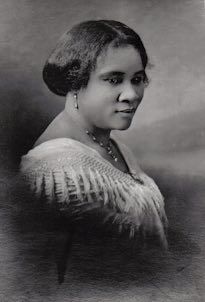 Madam C. J. Walker
Business
1867
Louisiana
1993
Madam C. J. Walker
Business
1867
Louisiana
1993

Madam C. J. Walker
Sara Breedlove, a Black entrepreneur considered the first African American woman to become a millionaire. She did this by devising a hair care and grooming system for African Americans and pioneered a door-to-door sales approach. The daughter of former slaves, Walker became an advocate for positive social change as well as a philanthropist.
 Eudora Welty
Arts
1909
Mississippi
2000
Eudora Welty
Arts
1909
Mississippi
2000

Eudora Welty
One of the most significant writers of the 20th century, Eudora Welty won many notable literary prizes, including the Pulitzer Prize for her novel The Optimist’s Daughter. Her work is marked by what critic Jonathan Yardley called an “abiding tolerance…a refusal to pass judgment on the actors in the human comedy,” and it transcends generations and national boundaries. In 1998, the Library of America recognized her literary accomplishments by honoring her as the first living author published in the prestigious Library of America series.
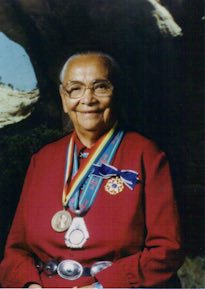 Annie Dodge Wauneka
Science
1910
Arizona
2000
Annie Dodge Wauneka
Science
1910
Arizona
2000

Annie Dodge Wauneka
First woman elected to the Tribal Council, she became determined to lead the fight against tuberculosis among the Navajo. She wrote a dictionary to translate English words for modern medical techniques into Navajo, and hosted a radio broadcast in the Navajo language to explain how modern medicine could help in better care for pregnant women and new babies and other family health problems.
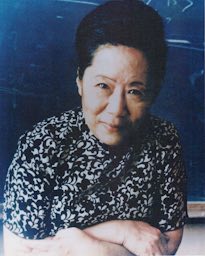 Chien-Shiung Wu
Science
1912
China
1998
Chien-Shiung Wu
Science
1912
China
1998

Chien-Shiung Wu
Nuclear physicist whose pioneering work altered modern physical theory and changed the accepted view of the structure of the universe.
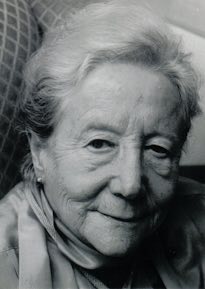 Florence Wald
Science
1916
New York
1998
Florence Wald
Science
1916
New York
1998

Florence Wald
Former dean of the Yale School of Nursing and founder of the Hospice movement in America, for which she was awarded the honorary Doctorate of Medical Sciences by Yale University in 1995. As a nurse, she went to Europe to study Hospice from the ground up.
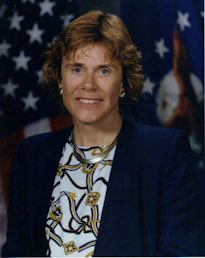 Sheila E. Widnall
Education, Government, Science
1938
Washington
2003
Sheila E. Widnall
Education, Government, Science
1938
Washington
2003

Sheila E. Widnall
Appointed Secretary of the Air Force in 1993 by President Clinton, Widnall became the first woman to hold the position. A world-renowned scientist, she holds three patents in airflow technology. As a current member of MIT faculty, she is internationally known for her work in fluid dynamics, specifically in the areas of aircraft turbulence and the spiraling air flows called vortices created by helicopters.
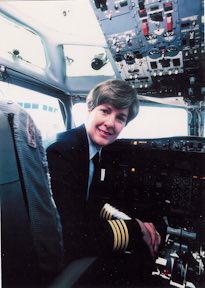 Emily Howell Warner
Science
1939
Colorado
2001
Emily Howell Warner
Science
1939
Colorado
2001

Emily Howell Warner
In 1973, Emily Warner became the first American female commercial airline pilot when Frontier Airlines broke the barrier against hiring women pilots. She later became the nation’s first woman airline captain, also at Frontier Airlines.
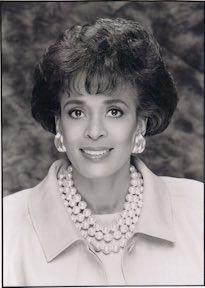 Faye Wattleton
Humanities
1943
Missouri
1993
Faye Wattleton
Humanities
1943
Missouri
1993

Faye Wattleton
Nurse who was the first woman since founder Margaret Sanger, and first African American to become president of the Planned Parenthood Foundation. Wattleton developed Planned Parenthood into an influential nationwide organization.
 Alice Waters
Business, Education, Humanities, Philanthropy
1944
New Jersey
2017
Alice Waters
Business, Education, Humanities, Philanthropy
1944
New Jersey
2017

Alice Waters
A chef, author and food activist, and the founder and owner of Chez Panisse Restaurant in Berkeley, California. She has been a champion of local sustainable agriculture for over four decades, and is credited with popularizing the organic food movement.
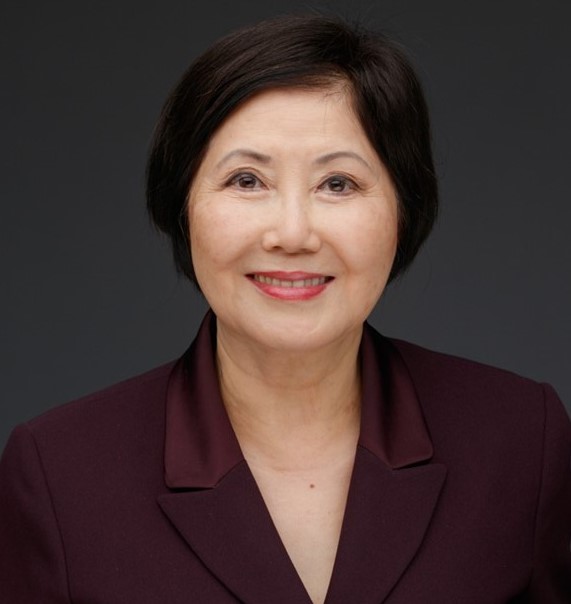 Flossie Wong-Staal
Science
1947
2019
Flossie Wong-Staal
Science
1947
2019

Flossie Wong-Staal
A world-renowned virologist and molecular biologist, Dr. Flossie Wong-Staal and her team of scientists at the U.S. National Cancer Institute were the first to molecularly clone HIV and to elucidate the complex structure of its genome. This accomplishment was instrumental in proving HIV to be the cause of AIDS, and in the subsequent development of diagnostic and therapeutic approaches for the disease.
 Oprah Winfrey
Arts, Business, Philanthropy
1954
Mississippi
1994
Oprah Winfrey
Arts, Business, Philanthropy
1954
Mississippi
1994

Oprah Winfrey
The first Black woman to own her own television production company and who became television’s highest-paid entertainer. She is an advocate for ending child abuse, and she contributes generously to colleges and universities.
